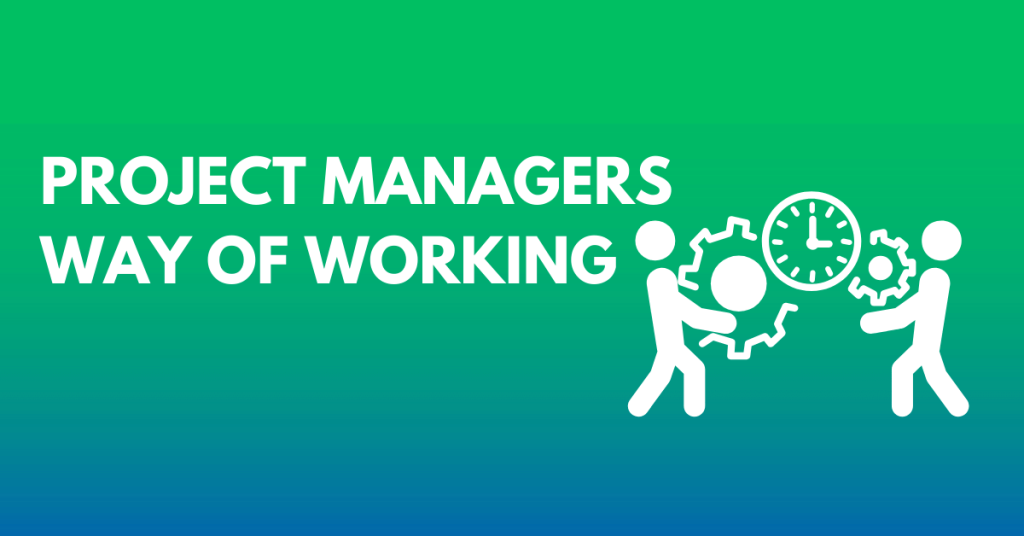
Project managers play a very valuable role in making projects successful. Their role is to guide the project from idea to completion. When it comes to technical project managers, they have an extra technical touch, too. The way a project manager works is the compass that directs the project towards success. They plan the route, manage the crew, and make essential decisions to avoid problems and ensure a clear path.
Their approach, strategies, and daily actions are the winds that sail the project forward. Project managers’ way of working is not just a set of tasks and responsibilities. It’s a mindset, a proactive and adaptable approach that breathes life into a project, ensuring it not only survives the journey but reaches its destination successfully and efficiently. So, let’s explore the essential practices and approaches that successful project managers commonly adopt in their work.
Core Responsibilities of a Project Manager
The role of a project manager comes with many responsibilities. No matter the project, they should follow those responsibilities to make their project successful. Here are some core responsibilities of a project manager.
Project planning
Yes! Their first responsibility is project planning. They sketch the project’s journey, setting clear paths and defining goals. They decide what needs doing, who will do it, and when it should be done. It’s like setting the stage before the play begins, ensuring every actor knows their part.
Team Leadership and Management
Leading the team is another crucial role. A project manager motivates, supports, and guides the team members. They act like a coach, ensuring that everyone plays their part well, fostering teamwork and collaboration.
Communication
Communication is the bridge in any project. A project manager ensures that everyone is on the same page. They share updates, feedback, and necessary information, keeping the project’s flow smooth and clear, preventing misunderstandings and confusion.
Risk Management
Risk is a part of every journey, and projects are no different. A project manager is like a watchful guardian, always looking for potential risks and issues. They assess, prepare, and act to prevent risks from becoming roadblocks in the project’s path.
Stakeholder Management
Lastly, they should manage relationships with stakeholders. They act as the project’s ambassador, maintaining a healthy, transparent, and positive relationship with all involved parties. They ensure stakeholders are informed, involved, and satisfied with the project’s progress and outcome.
A project manager is the guiding star, keeping the project on course and ensuring that every aspect, from planning to stakeholder management, is handled with care, expertise, and a winning strategy.
Essential Skills for Effective Project Management
A project manager should have quality skills to fulfill the above core responsibilities. Let’s explore these essential skills that make a project manager effective.
Leadership Skills
A project manager leads the team towards the project’s goals. They inspire, motivate, and guide the team, ensuring everyone moves in the right direction. Leadership is about making decisions with confidence and clarity.
Organizational Skills
A project manager juggles various tasks and responsibilities. They need to plan, execute, and monitor the project’s progress. Organizational skills help in keeping everything in order and avoiding chaos.
Risk Management Skills
Projects come with uncertainties. A project manager must identify, assess, and manage these risks. They need to be proactive, anticipating issues before they become major hurdles.
Communication Skills
Effective communication is key in project management. A project manager must convey ideas, give feedback, and keep everyone informed. Clear and concise communication prevents misunderstandings and keeps the project on track.
Yes! A project manager needs a mix of skills to steer a project towards success. They must be strong leaders, organized, risk-savvy, and excellent communicators. With these skills, a project manager can navigate through the complexities of any project, ensuring it reaches its objectives efficiently and effectively.
Adopting the Right Project Management Methodologies
Choosing the right project management methodology is like picking the right tool for a job. Different methodologies suit different projects. Here are some popular ones that project managers commonly use.
- Agile – This method is flexible and adaptable. It allows for changes and improvements as the project progresses. It’s like building a ship while sailing, making adjustments along the way.
- Waterfall – Waterfall is more rigid and follows a set path. It’s like constructing a building, where each floor must be completed before moving on to the next.
- Scrum – Scrum breaks the project into small parts called sprints. It’s like a series of short races, each one bringing the project closer to the finish line.
- Kanban – This method focuses on workflow and process. It’s like a conveyor belt, where tasks move smoothly from one stage to the next.
- Lean – This aims to eliminate waste and improve efficiency. It’s like trimming the fat, ensuring that every part of the project is valuable and purposeful.
- Six Sigma – This method focuses on quality and performance. It’s like fine-tuning a car engine to get the best possible performance.
- PRINCE2 – It is structured and process-driven. It’s like following a detailed map with clear directions and stages.
In conclusion, the right methodology can guide a project to success. It’s essential to choose one that fits the project’s needs and goals. Different projects require different approaches, and having a variety of methodologies allows for flexibility and adaptability.
Utilizing Technology in Project Management
Technology helps in managing projects more efficiently. It ensures that everything runs smoothly, from communication to task management. It makes tasks easier, faster, and more organized. Using the right technical tools can make a significant difference in achieving project success. Here are ways technology is used in project management.
- Project Management Tools – These tools are like the command center. They help in planning, organizing, and managing tasks and resources. Examples include Trello and Asana.
- Communication Platforms – Communication tools like Slack or Microsoft Teams keep everyone connected. They make sharing updates and information quick and easy.
- Time Tracking Software – Tools like Time Doctor help track the time spent on tasks. They assist in managing work hours effectively.
- Collaboration Tools – Google Workspace and Dropbox allow team members to collaborate on files and documents. They make sharing and working together simple.
- Scheduling Tools – Calendars and scheduling tools help in planning meetings and setting deadlines. They ensure that everyone is on the same page.
Continuous Learning and Improvement
For project managers, learning never stops. It’s key to staying relevant and effective. Here’s why continuous learning is essential and how to keep improving:
Importance of Continuous Learning
- Learning keeps you updated. It helps you adapt to new trends and tools in project management.
- It boosts your confidence. With more knowledge, you can tackle projects with a clear mind and strategy.
How Do They Stay Updated?
Quality project managers always try to learn from different sources. Remember, the best project managers are always curious and ready to learn.
- Read Widely – Books, articles, and blogs are rich sources of new ideas and practices.
- Online Courses – Websites like Coursera offer courses that can enhance your skills.
- Networking – Connect with other project managers. They can offer insights that you might not find elsewhere.
- Workshops and Seminars – These are places where you can learn in a focused way. They also offer hands-on experience.
Challenges in Project Management and Overcoming Them
Project management is no walk in the park. Managers often face hurdles that test their skills and patience. Let’s discuss common challenges and how to conquer them.
Common Challenges Faced by Project Managers
- Changing Project Goals – Sometimes, goals shift mid-project. These decisions confuse project managers to continue the project as planned.
- Limited Resources – Working with fewer resources than needed is a common issue faced by project managers.
- Communication Issues – Communication issues like misunderstandings can lead to mistakes and delays.
- Time Constraints – Tight deadlines can make the project process stressful. It could make the project process a mess if the project manager can’t handle it.
Strategies to Overcome These Challenges
- Updated technical project managers use technical tools to manage resources and many possible problems that can come ahead of the project. That’s why technical project managers are always one step away from general project managers.
- Experienced project managers are always ready to adapt when changes occur. They keep the team informed so everyone can adjust their tasks.
- A solid plan can help manage limited resources. It ensures that the team uses each resource wisely.
- The project manager should make sure everyone knows their tasks and deadlines. Regular updates can prevent misunderstandings.
- When time is tight, the project manager should focus on what’s most important first. It helps to move the project forward quickly.
Remember, every project has its ups and downs. The key is to stay calm and focused. With a good strategy and a good project manager, you can overcome any challenge that comes your way.
Conclusion
Being a project manager is more than just overseeing tasks. It’s about leading a team, planning for the unexpected, and ensuring that projects are completed on time and within scope. With the right skills, methodologies, and tools, project managers can navigate the challenges they face and drive their teams to success. Continuous learning and adapting to new industry practices are vital for staying ahead. Ultimately, a project managers way of working is the backbone of any successful project. Their approach, combined with dedication and the right resources, paves the way for achieving project goals.








